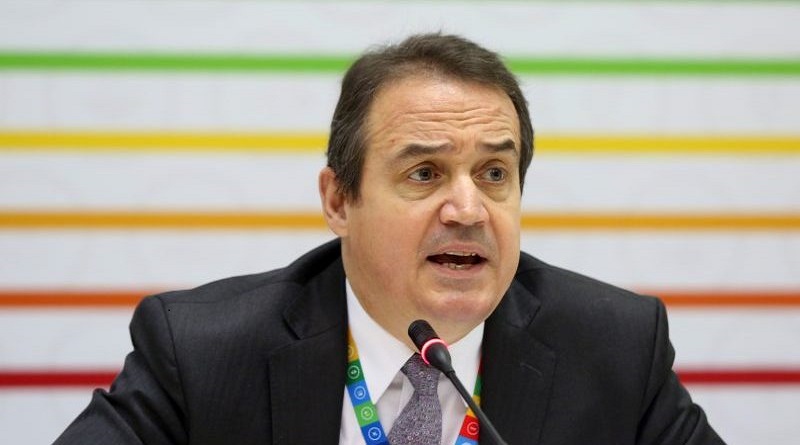GCF forum explores how to stem climate impact on world food security
The increasing severity of climate effects threatens to halt progress around the world in combatting a variety of development goals. That is why increasing flows of finance need to be directed towards bolstering food security by making agriculture more sustainable and climate resilient.
These were the views of participants at a recent Green Climate Fund (GCF) forum on the sidelines of a yearly symposium addressing global food security. Many of the forum participants stressed the need to draw in enhanced financial support from the world’s business sector to achieve this aim, while singling out initial GCF funding as a way to redirect current private sector finance flows.
“We need the private sector to complement the public funding, and we need to work jointly with the GCF to attract various investors to meet the ambition,” said René Castro Salazar, Assistant-Director General of the Climate, Biodiversity, Land and Water Department of the UN’s Food and Agriculture Organization (FAO). “To do so, we need an array of options, including market-based, results-based and non-market-based financing.”
The GCF side event “Climate finance’s role in food security: How can the Green Climate Fund unlock transformation?” was held during the annual Committee on World Food Security in Rome from 14 to 18 October.
As the world’s largest dedicated climate fund, a significant proportion of GCF’s USD 5.2 billion allocated so far to support climate action in developing countries goes to making agriculture more climate resilient while also reducing emissions. As many farmers in developing countries rely on their own agricultural produce to feed their families, climate change threatens their livelihoods and wellbeing.
Caroline Matipira, Minister Counsellor of the Republic of Zimbabwe, told the side event a GCF project approved in her country in July this year is a good example of how food and financial insecurity can be addressed at the same time.
“The (GCF) project will reduce risks for farmers who don’t have any collateral, and help food-insecure farmers and local communities to access the market,” she said. “Due to climate change, Zimbabwe is suffering from droughts and floods which never happened in the past. These climate events are affecting all our farmers in my country.”
While acknowledging GCF’s progress in addressing food security, many stressed the need for more GCF resources to scale up investments that unlock public and private financing flows to ensure future sources of sustenance through sustainable agriculture.
Higher temperatures, water scarcity and extreme weather events threaten to halt inroads made in reducing global poverty and increased funding for nutrition. The UN International Panel on Climate Change warned in a report released in August this year that rising global temperatures, linked to increasing pressures on fertile soil, risks jeopardizing food security across the planet. Scientists releasing that report highlighted that while more than 820 million of the world’s population are undernourished, up to 30 per cent of food is lost or wasted.




